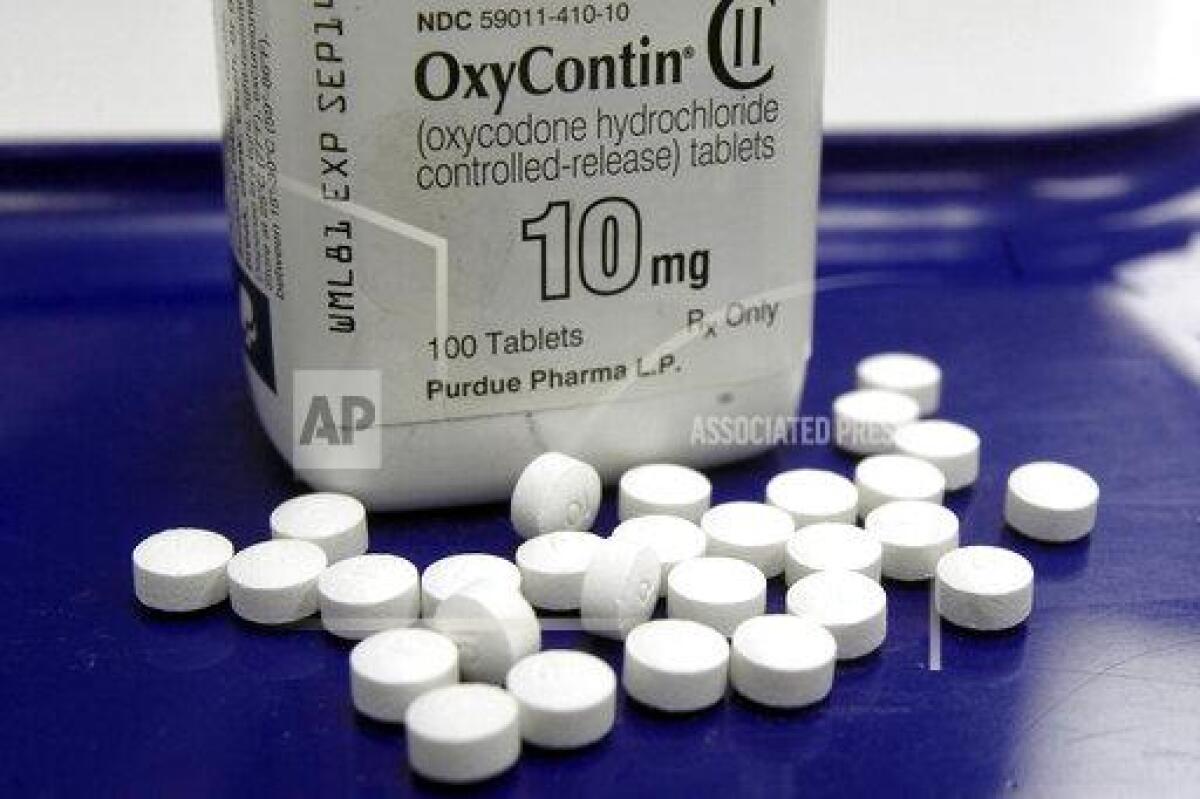Could this plant extract help fight the opioid epidemic?

As the opioid epidemic continues to claim lives, UC Irvine researchers have identified a plant extract that may help fight opiate addiction.
The COVID-19 pandemic has further worsened the opioid crisis, with more people dying of overdoses. The number of opioid overdose deaths has more than doubled in Orange County over the last decade.
According to the Orange County Health Care Agency, 234 residents died of opioid overdoses in 2011, compared with 499 in 2020. A huge contributor to the number of opioid deaths is the powerful synthetic drug fentanyl, which accounted for 381 of the deaths last year. The Orange County coroner did not test for fentanyl or other synthetic opioid types in 2010, said Dr. Curtis Condon, research manager at the agency.
But YHS, the extract of the plant Corydalis yanhusuo, could play a role in fighting the epidemic, allowing those who are addicted to opioids to potentially wean themselves off the drugs. According to UC Irvine, YHS has been used as a pain reliever in traditional Chinese medicine for centuries and is available in specialty stores.
Olivier Civelli, professor of pharmaceutical sciences at UC Irvine and an author of a study of YHS, said that the extract reduces pain and the development of opioid tolerance. Specifically, researchers found that when YHS was administered with morphine, it inhibited dependence, addiction and tolerance in animals.
A bellwether federal trial is set to start Monday in Cleveland to determine whether pharmacy chains should be held liable for the opioid crisis.
“When people take an opioid, especially morphine, but all the opioids like oxycodone and others that are on the market these days, people lose the effectiveness of the opiate … they need to take more and more and more,” Civelli said. “That is drastic because that is what leads people to take more and more and risk overdose.”
Civelli said researchers are now trying to determine how the extract blocks morphine tolerance. He is also hoping that further research will be done on how the drug acts when ingested by humans.
“I hope that it will interest people to try to do clinical trials,” Civelli said.
More than 93,000 people died of drug overdoses in the U.S. last year, nearly 70,000 due to opioids. According to the California Department of Health Care Services, fentanyl accounted for more than a third of overdose deaths between July 2019 and July 2020. Overdose deaths have nearly quadrupled since 2018. In particular, the agency noted that homeless populations are adversely affected by the rise of fentanyl.
Fentanyl is often accidentally ingested, killing thousands of Americans a year. Home test kits and a readily available nasal spray could help save lives.
More homeless people died in Orange County in 2020 than any other year. Opioids, particularly fentanyl, were responsible for many overdoses among homeless residents of Orange County. Of the 330 deaths, at least 90 were due to drug overdoses, according to data from the coroner’s office.
Homeless people had few places to turn over the last year and a half as the pandemic has gripped the county, as shelters faced outbreaks and resources were scarce.
“A lot of services and a lot of the resources that they had before were just completely wiped out single-handedly by COVID,” homeless advocate Tim Houchen said. “I know that we have a really big problem, nationwide, not just among homeless people, with opioids, particularly fentanyl. And I think a lot of these deaths probably are resulting from that.”
Brazil writes for Times Community News.
More to Read
Sign up for Essential California
The most important California stories and recommendations in your inbox every morning.
You may occasionally receive promotional content from the Los Angeles Times.













